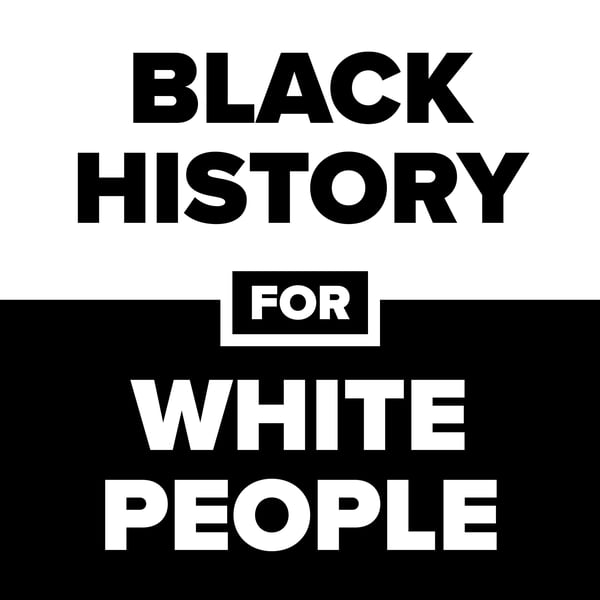Fannie Lou Hamer
Black History for White People
Black History for White People
3.6 • 719 Ratings
🗓️ 3 February 2021
⏱️ 54 minutes
🧾️ Download transcript
Summary
We cover the life and legacy of Fannie Lou Hamer. We walk through Fannie’s life story, talk of stories that shaped her character, discuss her impact on Black and Brown people in America, and end the conversation discussing the importance and necessity that Black women have in each of our lives.
For bonus content, full interviews, and the ability to vote for future topics, $5/month supports us at patreon.com/blackhistoryforwhitepeople.
Check us out on Twitter @BHforWP and Instagram @BlackHistoryForWhitePeople or freel free to email us at [email protected].
Support this podcast at — https://redcircle.com/black-history-for-white-people/donations
Advertising Inquiries: https://redcircle.com/brands
Privacy & Opt-Out: https://redcircle.com/privacy
Transcript
Click on a timestamp to play from that location
| 0:00.0 | I don't know what most white people in this country feel, |
| 0:05.0 | but I can only include what they feel from the state of their institutions. |
| 0:11.0 | Now, this is the evidence. |
| 0:15.0 | You want me to make an act of faith, risking myself, my wife, my woman, my sister, my children, |
| 0:21.7 | on some idealism which you assure me exists in America, which I have never seen. |
| 0:28.2 | Welcome back to Black History for White People, |
| 0:30.9 | a podcast where we educate, resource, and challenge white people about black history. |
| 0:36.2 | I'm Brad, and on today's show are my co-host |
| 0:38.2 | Katina and Garen. In celebration of Black History Month, we will be releasing new episodes |
| 0:43.3 | every Wednesday in February. So be on the lookout for twice the content this month. |
| 0:48.2 | Today's topic is Fannie Lou Hamer. We walk through Fannie's life story, talk of events that |
| 0:53.4 | shaped her character, discuss her |
| 0:55.0 | impact on black and brown people in America, and in the conversation discussing the importance |
| 1:00.0 | and necessity that black women have in each of our lives. We hope you enjoy the discussion. |
| 1:07.4 | Okay, y'all, I don't know anything about Fannie Lou Hamer, and I would bet that our listeners, most of our white listeners, have no idea she is. |
| 1:16.6 | So, Katina, you're going to have to really help us out here. |
| 1:19.1 | What's set up the scene for her coming into the world and where she's from, and then we can start to dive into her life. |
| 1:25.7 | Yes, indeed. |
| 1:27.2 | Fannie was born the youngest of 20 children to her parents, Ella and James Lee Townsend, in 1917, |
| 1:34.7 | to the backdrop of Jim Crow, rural Mississippi. |
| 1:39.2 | They were a family of sharecroppers, which for black folks was another name for slavery. Fannie learned to pick |
| 1:45.9 | cotton at the age of six to help her family survive. And they say that by the age of 13, Fannie was able to |
... |
Please login to see the full transcript.
Disclaimer: The podcast and artwork embedded on this page are from Black History for White People, and are the property of its owner and not affiliated with or endorsed by Tapesearch.
Generated transcripts are the property of Black History for White People and are distributed freely under the Fair Use doctrine. Transcripts generated by Tapesearch are not guaranteed to be accurate.
Copyright © Tapesearch 2025.

